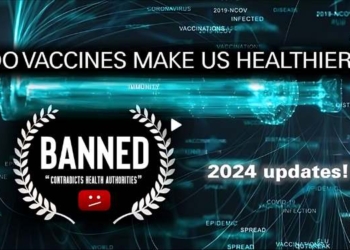
Image Source
Global health is a complex phenomenon, especially after the worldwide outspread of Covid-19. With sprouting health concerns, the demand for better healthcare systems is booming. Hospitals are trying to facilitate patients with chronic diseases while also accommodating Covid-19 patients. Indeed, this is a difficult time for the healthcare industry, but there is always hope after the horizon.
Health professionals are utilizing their knowledge to make an impact in these modern times. Alongside many medical disciplines and international developments, public health holds the bag to improve and protect people and communities' health. These professionals promote healthy lifestyles, research on the disease, and injury prevention to respond to infectious diseases.
Do you wish to help people in these challenging times? Public health programs are preparing future global leaders by giving them a thorough knowledge of the field. Hence, you can contribute to the health sector by monitoring health status to identify and solve community problems. Diagnose the health complications, inform, educate people about safety concerns, and much more. If you are thinking about what other ways you can make a difference, have a look below. The following are the five ways MPH programs benefit the healthcare systems:
1. Prevents Health Disasters
Millions of lives affected by the Corona pandemic has put a severe strain on the current healthcare system. The aging population needs medical treatment, and the existing resources are insufficient to meet the demand. Therefore there is a need to expand the existing public healthcare sector by introducing health care programs to train more professionals.
These Public health programs focus on disease prevention by taking multiple initiatives. Due to the lockdown administered by most governments, it's better to enroll in an online MPH program if you are interested in serving the community in these challenging times.
Alongside reducing the pressure on healthcare systems by offering your service as an MPH degree holder, you can choose the level of operation – nationally, provincially, or at the city level. Public health experts collaborate with epidemiologists, nurses, doctors, and with groups of interdisciplinary professionals. They investigate outbreaks, ensure local food safety protocols, and encourage a healthy lifestyle. In short, they act as a shield against diseases, protecting the healthcare sector.
2. Successful Career
The healthcare systems lack resources to meet booming demands. As a result, there is a shortage of equipment and healthcare professionals. The lucrative job prospects are encouraging students to step into this field, but this is not enough. Surprisingly, MPH programs are helping students develop a career success plan to manage their careers.
It offers promising career growth opportunities, eliminating the struggle of finding jobs after graduation. Therefore, start looking for MPH programs that can help you excel in your career rather than waiting for graduation. As more people step into this field, it can help in combating the shortage of health workers. Instead of frontline workers, they will be working behind the scenes.
3. Turns Data into Action
The MPH programs equip professionals with seven core competencies that can do wonders for the health sector. It includes:
- Communication
- Policy evaluation
- Diversity and inclusiveness
- Science
- Assessment and analysis
- Leadership
- Collaboration and advocacy
Let us help understand how these skills benefit the health sector. Assessment and analysis focus on monitoring the population's health status to understand the country's standard health problems. Professionals conduct independent investigations and put data into health systems to predict results. It might show an increase in chronic disease or detects viruses, preparing the health sector in advance.
Next up, policies are devised, turning the available data into action. It is all about information sharing, working with community organizations, and addressing emerging concerns. Assurance enforces public health laws and regulations to regulate hospitals and clinics, improving the delivery of services. Collaboration and advocacy ensure the right solutions. It focuses on improving the science of public health, which involves leadership and clear communication.
4. Emphasis on Management & Coaching Skills
Doctors and other healthcare professionals are working under high-pressure situations. Hence, they don't have time for routine tasks of performing diagnosis. Therefore, it is time for other experts to increase their expertise and help doctors fight the global pandemic. MPH programs focus on management and coaching skills to scale up improvements in this sector.
It familiarizes them with new ways of managing tasks, taking advantage of tech-savvy tools. Technology facilitates automated systems, meaning it can free up professionals from bookkeeping, allowing them to give attention to more valuable tasks. Likewise, doctors no longer have to wait for information available as they have automatic access to it.
Moreover, it helps you learn the skills and tools needed to coach health workers and improve their performance. For instance, you can make them learn about quick diagnostic procedures, efficient patient care techniques, and much more. Look for an MPH program with a sound management component with courses in design, implementation, and health systems management.
5. System Thinking
The field of public health is more diverse than one can imagine. Alongside implementing policies for improving the delivery of health services, it can recognize system-level properties. It analyzes the dynamic interactions between hospitals, communities, and environments. Thus, they can identify unintended consequences faced by the healthcare sector.
Likewise, they utilize system thinking to achieve sustainable impacts, ensuring maximum people can benefit from it. For instance, the use of mosquito nets for the prevention of malaria should not be limited to when malaria cases are rising. Public health focuses on routine immunizations, even when you have recovered from the disease. These interventions allow health systems to achieve lasting results by providing a robust curriculum on health systems and their work.
After all, they can articulate changes by deploying inputs and outputs that can be accurately measured. The healthcare systems must know how to create improvement strategies, and MPH programs explain how systems can be tested and validated to maximize efficiency.
Conclusion
When it comes to making a significant impact, you have to make every possible effort. The growing popularity of MPH programs is making people wonder whether it is benefiting the health systems. Fortunately, public health focuses on health disparities to bring meaningful change in this industry. Thus, providing you an opportunity to make a difference.














